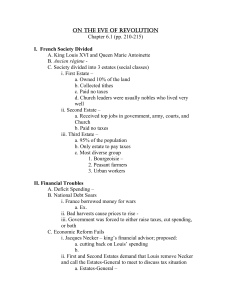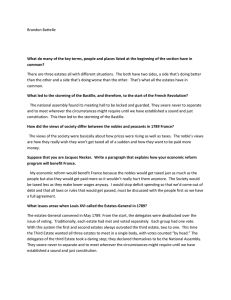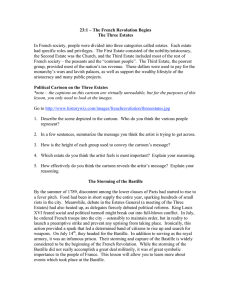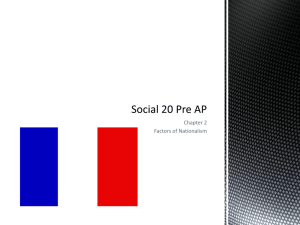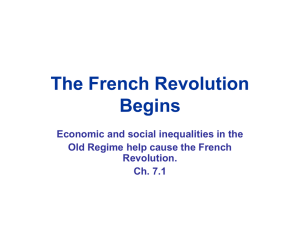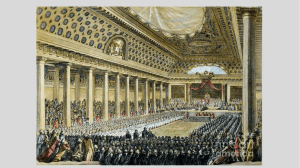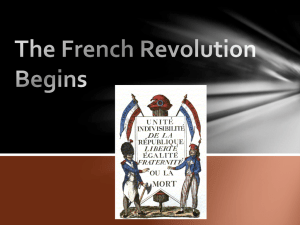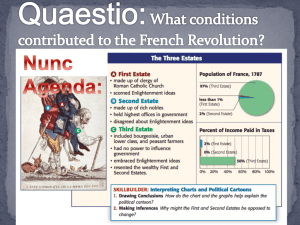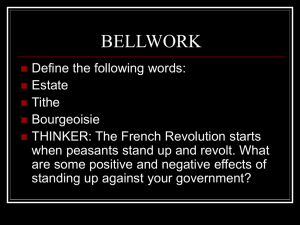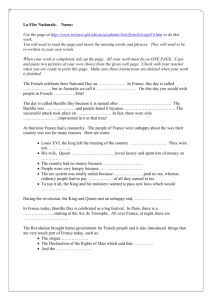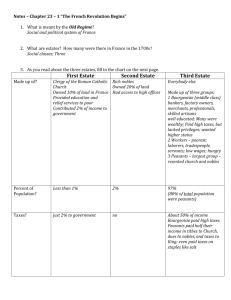Chapter 6 Section 1: On The eve of revolution
advertisement
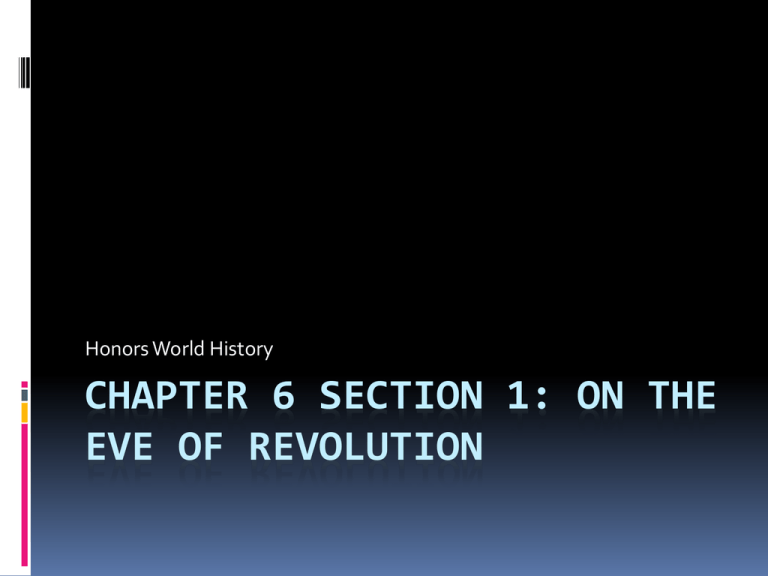
Honors World History CHAPTER 6 SECTION 1: ON THE EVE OF REVOLUTION Unhappy people Most people of France at this time were Hungry Unemployed Poorly Paid Out with the Old, In with the New Under the ancien regime, or old order, everyone in France belonged to one of three classes FIRST ESTATE The CLERGY Enjoyed enormous wealth and privilege Owned about 10 percent of land, collected tithes, and paid no taxes Provided some social services SECOND ESTATE The NOBILITY Owned land but had little money income Hated absolutism Feared losing traditional privilege, especially exemption from taxes THIRD ESTATE The BOURGEOISIE and PEASANTS Peasants were 90 percent of French population Resented privilege of first and second estates Burdened by taxes Many earned miserable wages and faced hunger and even starvation Woe is Me Economic woes added to the social unrest and heightened tension For years, the French government had engaged in deficit spending that is, a government’s spending more money than it takes in. Louis XIV had left France deeply in debt. Recent wars, a general rise in costs in the 1700s, and the lavish court were incredibly costly. To bridge the gap between income and expenses, the government borrowed more and more money. Things Just Keep Getting Worse Bad harvests in the late 1780s sent food prices soaring and brought hunger to poorer peasants and city dwellers. Economic Problems and Riots France’s economic crisis worsened bread riots spread nobles denounced royal tyranny. Louis XVI summoned the Estates General. The Third Estate declared themselves to be the National Assembly and invited delegates from the other two estates to help them write a constitution. Joining Forces When reform-minded clergy and nobles joined the Assembly, Louis grudgingly accepted it. Storm the Bastille On July 14, 1789, more than 800 Parisians gathered outside the Bastille, a medieval fortress used as a prison. They demanded weapons believed to be stored there. The commander of the Bastille opened fire on the crowd, and a battle ensued, in which many people were killed. July 4th = July 14th???? The storming of the Bastille quickly became a symbol of the French Revolution, a blow to tyranny. Today, the French still celebrate July 14 as Bastille Day.

